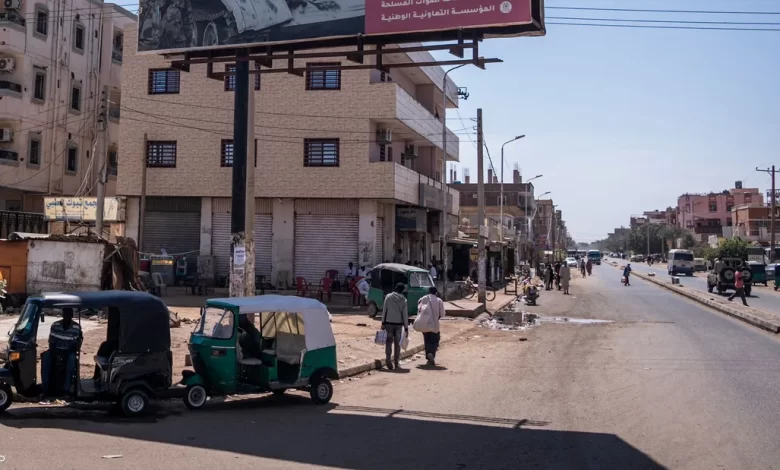Omdurman Welcomes Ramadan Between Fear and Hope

Sudan Events – Agencies
Residents of Karari locality in Omdurman welcomed the arrival of Ramadan with noticeable activity and energy, roaming local markets late into Friday night.
Fasting during the ongoing war in Sudan for nearly two years is not new; this marks the third Ramadan in which Sudanese people continue to endure the hardships of conflict, alongside worsening living and health conditions.
While citizens mainly rely on communal kitchens for food, these kitchens themselves face significant challenges that threaten their closure due to funding cuts.
A Glimpse of the Past
In the neighborhoods of Al-Thawra in Karari locality, life seemed to regain some of its pre-war normalcy. Grocery stores, butcher shops, and spice mills along Al-Nis and Al-Shanqeeti streets were crowded on Friday night.
Ibrahim Al-Tahir, the owner of a spice mill and a store selling legumes, hibiscus, and baobab—two favorite Ramadan drinks—told Ultra Sudan that on Friday night, he truly felt that life had returned to normal after a prolonged period of stagnation caused by the war and the prevailing caution in the area for the past two years.
He added, “On Friday and the preceding days, we managed to sell all our stock and even had to bring in new supplies to meet customer demand.”
The legume trader continued, “There was a high demand for grinding ‘weika’—a staple dish served with porridge during Ramadan—along with chickpeas for making falafel, and an active market for hibiscus, baobab, and ground peanuts (dakwa). Additionally, there was a strong demand for fresh meat grinding, and, of course, spices, from chili to black pepper and fennel.”
Market Revival
Following significant advances made by the army in the past three months across various parts of Khartoum state, large numbers of people have begun returning to their homes, particularly in Bahri city, Karari locality, and other areas of Omdurman. Markets have also seen increased activity recently, with goods becoming more available and small neighborhood shops regaining some vibrancy.
Ahmed Othman, a resident of Karari in Omdurman, told Ultra Sudan: “Yes, there are risks. The Rapid Support Forces (RSF) still deliberately shell the area and often target civilian gatherings such as markets. The latest attack on Sabreen Market in Al-Thawra resulted in a high number of civilian casualties.”
Despite security concerns and dangers, Othman added, “People are determined to reclaim their lives and hope for an end to the war. Displacement and refuge have caused immense suffering, and for many, returning home is the safest and only viable solution.”
Rising Prices
Trader Ibrahim Al-Tahir acknowledged price increases in some goods but attributed this to the war’s challenges and the risks that small traders take to supply their neighborhoods. He also cited currency shortages and the scarcity of certain essential items as key issues. However, he pointed out a general decline in the prices of most goods, making them more accessible.
“There are severe cash liquidity problems, and most people have little money,” he explained. “They rely on bank transfers and purchase only what they need in small amounts.”
Despite the hardships felt in Omdurman, other parts of Khartoum, and across Sudan, citizens express joy at the arrival of the holy month, hoping that its blessed days will bring an end to the prolonged war.
Source: Ultra Sudan



